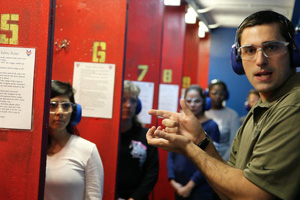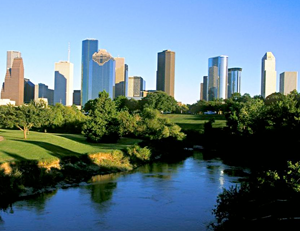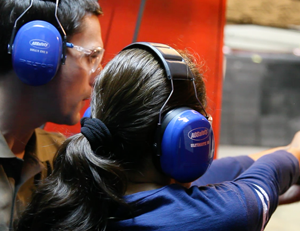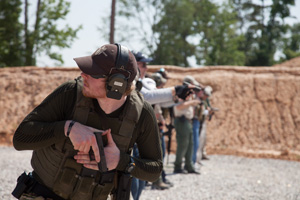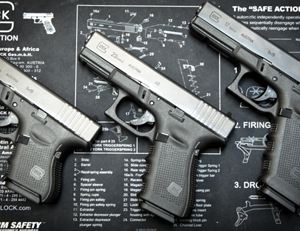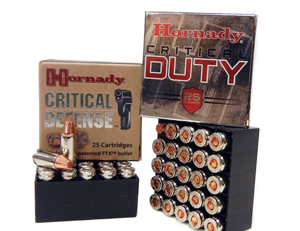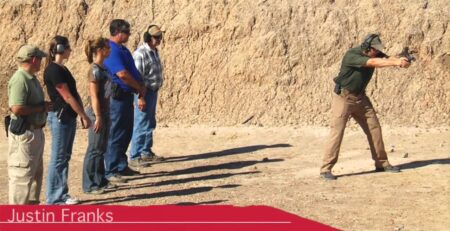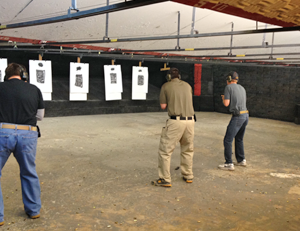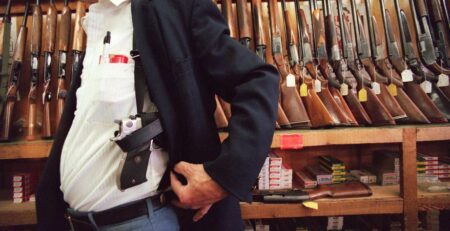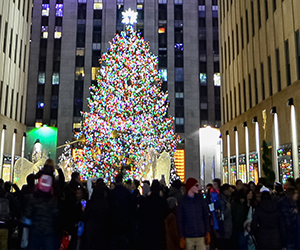
18
TRAVEL SAFETY AND SECURITY: HOLIDAY UPDATE 2017
On December 6, 2017, the U.S. Department of State updated its worldwide caution statements encouraging U.S. citizens to maintain a high level of vigilance and to take appropriate steps to increase their security awareness when traveling.
The Department stated, “Terrorist groups including ISIS, al-Qa’ida, their associates, and those inspired by such organizations, are intent on attacking U.S. citizens wherever they are.”
Terrorists use basic tools that allow them to attack large crowds effectively, including knives, pistols, and vehicles. The Department shared a list of “soft” targets, which are often the focus for extreme terrorists.
- High-profile public events (sporting events, political rallies, demonstrations, holiday events, celebratory gatherings, etc.)
- Hotels, clubs, and restaurants
- Places of worship
- Schools
- Parks
- Shopping malls and markets
- Tourism infrastructure
- Public transportation systems
- Airports
ISIS has threatened attacks on popular tourist destinations during Christmas, including New York’s Times Square, London, Paris, and Rome. The Department reminds Americans to exercise caution at holiday festivals and events.
When traveling this holiday season, take some time to learn about your destination, be aware of areas of concern, make use of local knowledge, be prepared with emergency plans before departure, and practice situational awareness.
TRAVEL SAFETY & AWARENESS:
- When you arrive at your hotel, make a point to familiarize yourself with it, including locating emergency exits, fire extinguishers, and alarms, and find out who the Director of Security is. If possible, obtain his or her direct numbers.
- When booking a hotel room, travelers should also request rooms on the third through seventh floors, high enough to avoid violence at the street level, yet low enough to still evacuate safely in the event of a fire.
- When going to a restaurant or event, identify where the access and exit points are, if they have security on site, and the location of medical equipment.
- Make a plan with family that includes a meeting point if you are separated during an emergency.
- During an emergency, many mobile phone networks will go down; in some cases, text messages may go through, even though calls may not. Texting also helps to free up more “space” for emergency communications on the network. You can also try sending emails or using social media to communicate with loved ones.
- Avoid large crowds in unsecured locations; do not loiter in hotel or theater lobbies, tourist sites, or areas in front of security checkpoints, including airport arrival halls. Move into the secured area and away from the entry as quickly as possible.
- When walking on sidewalks in crowded cities, stay aware of the street traffic and walk on the inside of the sidewalk. Be hypervigilant when crossing streets, and avoid sidewalk cafes near streets.
- Avoid traveling alone, especially after dark. Be conscious of your surroundings and avoid areas you believe may put your personal safety at risk.
- Trust your instincts. If you feel a person or situation is not right or unsafe, leave immediately, as it is better to be safe than sorry. If you see something out of the ordinary, leave the area and contact the police.
- Map out the best routes to get to and from work, stores, schools, hospitals, police stations, and other safe havens. Be aware of any weak or dead mobile phone coverage areas along your routes. It is best to stay on busier streets where traffic flows at a brisker pace.
- Exercise common sense. Be aware of your surroundings and attempt to blend in whenever possible.

18
TRAVEL SAFETY AND SECURITY: HOLIDAY UPDATE 2017
On December 6, 2017, the U.S. Department of State updated its worldwide caution statements encouraging U.S. citizens to maintain a high level of vigilance and to take appropriate steps to increase their security awareness when traveling.
The Department stated, “Terrorist groups including ISIS, al-Qa’ida, their associates, and those inspired by such organizations, are intent on attacking U.S. citizens wherever they are.”
Terrorists use basic tools that allow them to attack large crowds effectively, including knives, pistols, and vehicles. The Department shared a list of “soft” targets, which are often the focus for extreme terrorists.
- High-profile public events (sporting events, political rallies, demonstrations, holiday events, celebratory gatherings, etc.)
- Hotels, clubs, and restaurants
- Places of worship
- Schools
- Parks
- Shopping malls and markets
- Tourism infrastructure
- Public transportation systems
- Airports
ISIS has threatened attacks on popular tourist destinations during Christmas, including New York’s Times Square, London, Paris, and Rome. The Department reminds Americans to exercise caution at holiday festivals and events.
When traveling this holiday season, take some time to learn about your destination, be aware of areas of concern, make use of local knowledge, be prepared with emergency plans before departure, and practice situational awareness.
TRAVEL SAFETY & AWARENESS:
- When you arrive at your hotel, make a point to familiarize yourself with it, including locating emergency exits, fire extinguishers, and alarms, and find out who the Director of Security is. If possible, obtain his or her direct numbers.
- When booking a hotel room, travelers should also request rooms on the third through seventh floors, high enough to avoid violence at the street level, yet low enough to still evacuate safely in the event of a fire.
- When going to a restaurant or event, identify where the access and exit points are, if they have security on site, and the location of medical equipment.
- Make a plan with family that includes a meeting point if you are separated during an emergency.
- During an emergency, many mobile phone networks will go down; in some cases, text messages may go through, even though calls may not. Texting also helps to free up more “space” for emergency communications on the network. You can also try sending emails or using social media to communicate with loved ones.
- Avoid large crowds in unsecured locations; do not loiter in hotel or theater lobbies, tourist sites, or areas in front of security checkpoints, including airport arrival halls. Move into the secured area and away from the entry as quickly as possible.
- When walking on sidewalks in crowded cities, stay aware of the street traffic and walk on the inside of the sidewalk. Be hypervigilant when crossing streets, and avoid sidewalk cafes near streets.
- Avoid traveling alone, especially after dark. Be conscious of your surroundings and avoid areas you believe may put your personal safety at risk.
- Trust your instincts. If you feel a person or situation is not right or unsafe, leave immediately, as it is better to be safe than sorry. If you see something out of the ordinary, leave the area and contact the police.
- Map out the best routes to get to and from work, stores, schools, hospitals, police stations, and other safe havens. Be aware of any weak or dead mobile phone coverage areas along your routes. It is best to stay on busier streets where traffic flows at a brisker pace.
- Exercise common sense. Be aware of your surroundings and attempt to blend in whenever possible.

